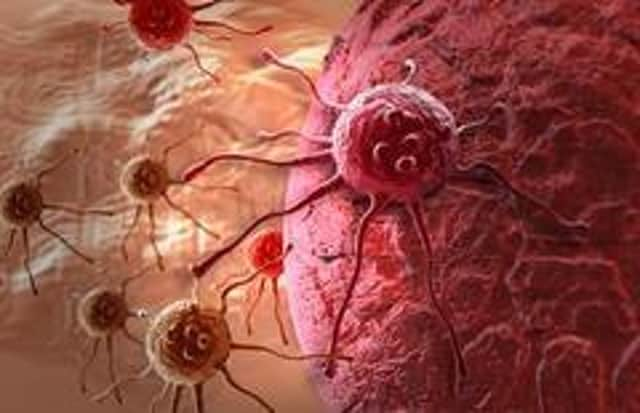Get checked out during November's Pancreatic Cancer Awareness Month - Steve Cardownie


I have written before that I did not display any symptoms that would potentially have alerted me to the onset of prostate cancer and only found out when I demanded a blood test (on a recommendation from a friend) to determine my Prostate Specific Antigen level, which was high and which ultimately led to my treatment which, so far, looks likely to be successful.
It is against this background that I noted that this November has been designated as Pancreatic Cancer Awareness Month. Much needed, as currently, more than half of people diagnosed with pancreatic cancer die within three months. One of the aims of the campaign is to raise awareness of the symptoms so that people know what they are and can get diagnosed sooner.
Advertisement
Hide AdAdvertisement
Hide AdSadly, by the time that some people display symptoms it can often be too late to successfully treat the disease. Like all cancers early diagnosis significantly boosts the chance of survival. The symptoms of pancreatic cancer can be vague and can appear periodically, they include stomach or back pain, indigestion, unexplained weight loss and loss of appetite, diarrhoea or constipation. If you have any of these symptoms, it is recommended that you should contact your GP or call the NHS on 111. Another symptom is jaundice, which is yellow skin or eyes and itchy skin. If you have jaundice, you are urged go to your GP or the nearest A&E straight away.
Pancreatic Cancer (UK) states that “It’s important to remember that having these symptoms doesn’t always mean that you have pancreatic cancer, but you should get them checked out. These symptoms can be caused by more common things, or health conditions such as pancreatitis (inflammation of the pancreas) stomach ulcer, gallstones, irritable bowel syndrome (IBS) and hepatitis (inflammation of the liver). They can also sometimes be signs of other cancers, so you should always get them checked out.”
Fundraising will be an important feature of Pancreatic Cancer Awareness Month in order to finance research breakthroughs that could save lives including, “the funding of a ground-breaking new research project which aims to develop a breath test for the early detection of pancreatic cancer.” The Pancreatic Cancer (UK) website is full of helpful suggestions of ways to fundraise, so no-one need be devoid of ideas.
Unfortunately, research into pancreatic cancer has been underfunded for years, only receiving 3 per cent of the UK cancer research budget, which is three times less than research spend on breast cancer. The Pancreatic Cancer (UK) research strategy is focussed on investing in the best and the brightest researchers, tackling the key priority areas for people with pancreatic cancer and the research community.
Advertisement
Hide AdAdvertisement
Hide AdDue to one councillor’s foresight, the agenda for tomorrow’s full meeting of City of Edinburgh Council contains a motion by Councillor Marie-Clair Munro which, amongst other matters, calls on the council to agree to highlight the awareness month “throughout our public buildings through signage, leaflets and information. The aim being to improve survival rates from pancreatic cancer by ensuring more people are diagnosed early and that everyone has access to effective treatments, support, information, and care.”
Over to you!